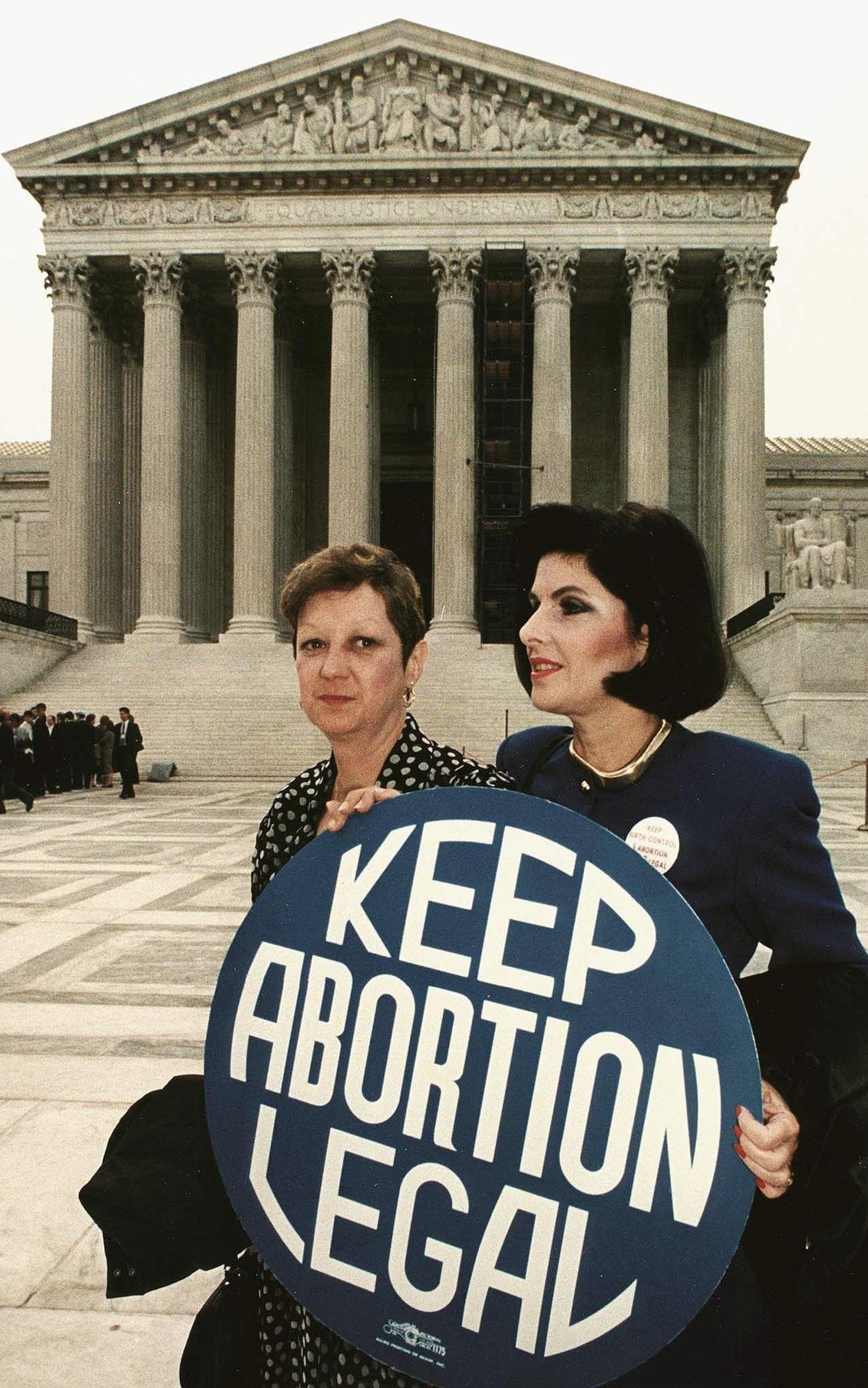Understanding Roe v. Wade
While Roe v. Wade is widely understood to be the court case that legalized abortion, many people do not truly understand the legislation it passed and the specific instances of abortion it legalized. What Roe v. Wade actually did is one of the most important misconceptions involved in the abortion discussion.

(Image of Norma McCorvey and Gloria Allred Outside the Supreme Court, from NPR)
What did Roe v. Wade do?
Roe v. Wade disallowed states from regulating abortion during the first trimester of pregnancy and dictated that only in the second trimester could states regulate, but not completely ban, abortion. By the end of the second trimester, or about twenty-four weeks into a pregnancy, the fetus was considered to be "viable" and states were free to put into place their own laws regarding abortion access.
The case used the Fourteenth Amendment as grounds for the ruling: "...No state shall make or enforce any law which shall abridge the privileges or immunities of citizens of the United States; nor shall any state deprive any person of life, liberty, or property, without due process of law..."
In other words, Roe v. Wade used the right to privacy put in place by the Fourteenth Amendment, coupled with the idea of "due process," to make abortion unrestricted during the first trimester of pregnancy.
What Happened With Dobbs v. Jackson?
Where Roe v. Wade protected abortion access through the end of the second trimester of pregnancy due to the wording of the Fourteenth Amendment, the ruling of Dobbs v. Jackson deemed that abortion access was not protected by the right to privacy as guaranteed by the amendment, and therefore Roe v. Wade was not constitutional and subsequently became overturned.
Dobbs v. Jackson argued that the privacy guaranteed by the Fourteenth Amendment only applied to fundamental rights, which abortion was not. As a result of Roe v. Wade being determined to be unconstitutional, states are now free to enact regulations and bans on abortion as they see fit.
What cases used Roe v. Wade as a precedent?
While Roe v. Wade is mainly known as the case that made abortion legal, the details concerning one's right to privacy set a legal precedent for a number of future court cases, even ones unrelated to abortion. Roe v. Wade was based on individual privacy as provided by the Fourteenth Amendment, a distinction from the previously-used generalization of privacy. Though numerous court cases relied on Roe v. Wade for their argument, some of the most important ones related to abortion access are:
- Planned Parenthood v. Casey
- Webster v. Reproductive Health Services
- Gonzales v. Carhart
- Whole Woman's Health vs. Hellerstedt
- Whole Woman's Health v. Jackson
The above cases are described in the Abortion Timeline, which can be found on the previous page.